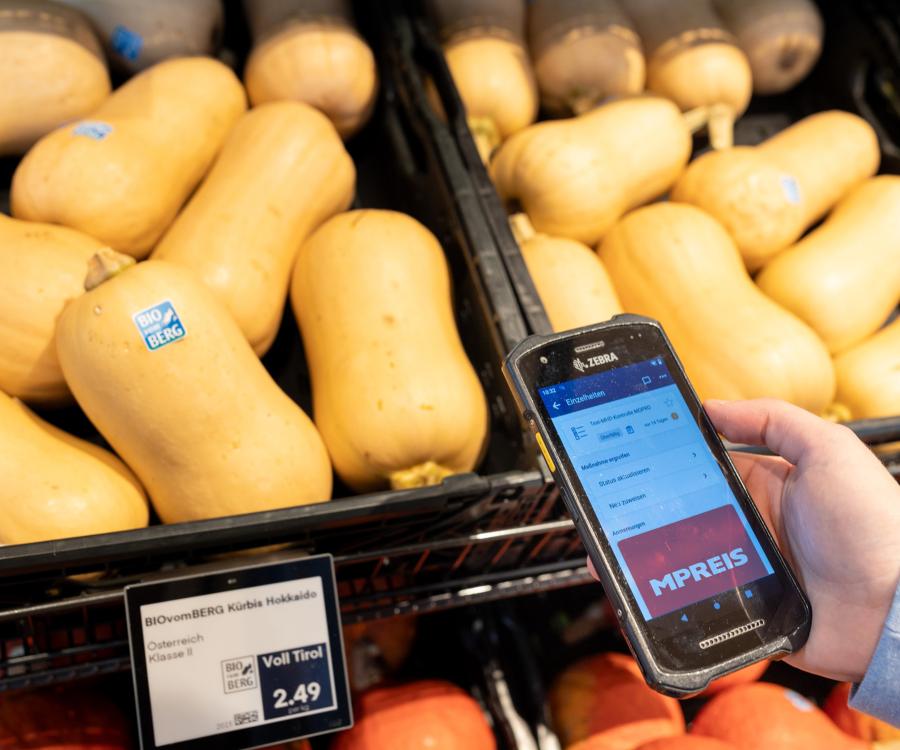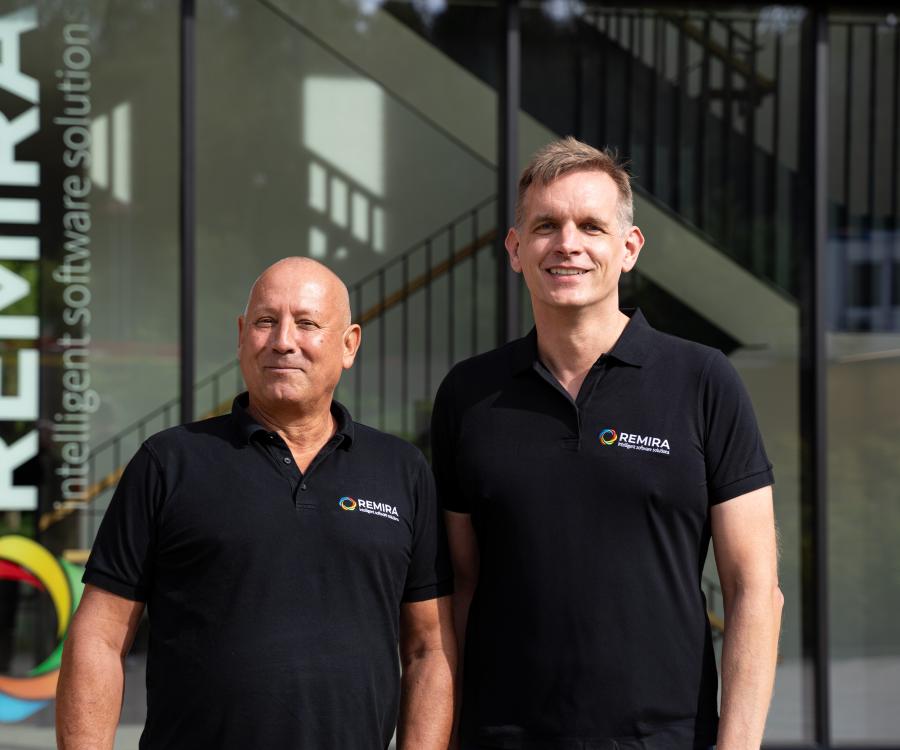
Itellium was the IT sector of Karstadt, was sold and then brought back and is now an owner-operated company. Of the 700 former jobs about 270 remain. For the first time ever, Itellium was an exhibitor at the recent EuroCIS, introduced a new payment system and presented itself as a partner in Business Intelligence. In this interview Jens-Uwe Holz and André Paul explain, how the relaunch has worked out so far and why BI is essential for retail and what needs to be paid attention to.
What were the reactions to your appearance at the EuroCIS? Did you make any first deals?
Jens-Uwe Holz: The response to our appearance as an owner-operated IT service provider was positive throughout. It was not just our universal solutions and range of products for commercial enterprises that were well received, but also the fact that we now enter the market as a small-scale IT service provider. We talked to companies, which we previously had no access to as a subsidiary company. One hot topic was our study on the mobile payment system ItelliPay. At the trade fair we introduced our open source-based BI solution Genius for the first time and also had some promising conversations. All in all our expectations for the trade fair were more than met. Actual deals merely four months after our reestablishment were not part of our expectations. However, some trade fair leads resulted in several pilot phases, which currently are going very well.
Itellium was the IT subsidiary of Karstadt. How big is the dependency on the corporate department store?
Jens-Uwe Holz: Itellium today is growing in- and outside the retail sector. In this way, our independence from our largest retail client is slowly, but steadily increasing. Since our new start, Itellium has gained a good dozen new clients. We are profitable and financially sound. We want to continue our set course and in doing so, bring our experiences in retail more than ever to sectors which possess similar complex supply chains. We have set ambitious, yet realistic goals for the future. Among them is that we would like to annually grow 15 percent.
Business Intelligence – a new name for an old hat? Collecting data and interpreting it should be part of the ins and outs of a company – or shouldn’t it?
André Paul: Collecting sales relevant data indeed has always been part of what a company does, but that alone is not BI yet. It goes far beyond simple collection and retrieval of data. On the one hand it is about the visualization and intelligent interpretation of data, which is generated from the many different and complex IT systems of a company. On the other hand it is also about the accurate consolidation of data content from different data sources to provide a harmonized clear truth for economical purposes. The resulting insights are an integral part of the operational process and planning in management and operating departments of today. They are then further used to control operative systems. This creates a closed loop, in which information is getting better and more accurate. It also lets decisions be made on the basis of profound analysis and general conditions like OTB budgets (i.e. open-to-buy) can be adhered to. Thus the quality in the processes is continuously enhanced.
In addition, BI tools continue to develop. The possibility of a forward-looking reporting, meaning forecasting, is playing an ever increasing role. Intelligent projections as the basis for decision making, gives businesses an important competitive edge. For example, wondering about the stock value in x-amount of days is fundamental for amortizing decisions.
These days, a powerful BI needs to be part of the daily business tools, if a retailer wants to keep up with his competitors. It is an important value adding factor and the foundation for a significantly more efficient supply of goods.
Has retail in Germany sufficiently recognized the value of BI yet?
Jens-Uwe Holz:Yes – if you think cross-industry, retail is actually a trend-setter when it comes to BI. After all, in no other business sector is the flow of commodity as varied and commodity sales so dependent on external factors as in retail. To master this challenge, you need powerful BI structures, which must be consistently advanced in their development, since the demands from its environment are constantly changing. That is why retail needs to constantly continue to optimize its decision-making processes.
André Paul: The BI market is already providing the necessary equipment for this. The level of innovation is enormous here. What was current yesterday, is quickly out of date tomorrow. This is especially evident in BI user interfaces. Instead of complex illustrations of various information in data files that are often not relevant to the individual user, users today work with clearly laid out illustrations, where they can quickly identify fields of activity.
BI combines large data volumes into clearly laid out graphics. How to you avoid losing important warning signals?
André Paul: With the help of BI systems, warning signals are actually better identifiable than ever before, because in modern systems, data collection and its presentation is only a small part of their performance scope. Their special additional benefit is in the lasting increase of the user’s capacity to act. It is imperative to specialize and individualize the analysis. In a specialization, the analysis is focused on precise assertions, and for example seasonal goods are correlated with the sale down and dead stock rates. With individualization, reports can be tailored to the individual department and management needs, so they can solve their problems correctly. Yet to be able to do this, today’s software systems need to be geared to where they can process and illustrate data volumes quickly. It is the responsibility of the IT service provider to put the daily updated information in the correct and clear correlation to the factors, which are crucial for success. To accomplish this, the service provider needs to operate at eye level with the operating department, because only the operating department knows, which warning signals are important.
Standard software saves internal development costs. Is the adaptability for instance with SAP sufficient?
André Paul: Today’s standard BI tools generally are designed as a kit. They are flexible enough to adapt to different requirements. Yet our practical experience at Itellium also shows, that standard versions as such usually are not complete or optimally aimed at the needs of every customer. Often they will still need an individual layout. This is especially the case for the design of the visualization level in a system. While a lot is reliably solved in the area of data provision in these standard versions, in the interface design it is often important to offer the user exactly what he/she needs. Often the right choice of term decides over acceptance and intensity of use of a BI system. If standard systems do not offer enough possibilities or flexibility in such cases, we additionally apply Genius.
SAP was under fire for the increased cost for their support. Should you become dependent on a large provider?
Jens-Uwe Holz: The decision for a particular BI system should less be a question of whether to choose a large or a small provider, but should be more a question of most system benefits. After all, the individual company tasks and the degree of coverage of the service provider’s software package are most important. Generally, a larger provider like SAP can always provide better support and more effective universal development than a small provider can. Additionally, you can reach service level agreements with a provider. Here, you have a contact person and you know what he needs to deliver by which time. When you choose a comprehensive provider, the amount of interfaces that need to be individually developed and the associated system discontinuities are minimized. In practice, this makes the system easier to service and handle.
André Paul: Yet even with standard systems you need to keep in mind, that through provider acquisitions, complex internal interfaces may exist. Not everything that says standard always guarantees technological continuity. Several systems of larger providers have grown within the scope of mergers and have extensive internal interfaces, which in turn cause expenses in the implementation of integrated BI solutions. This is why it can make sense to look for alternative solutions from the Open Source sector for example. An active community can definitely also deliver top quality support.
Is Open Source an alternative when it comes to BI?
André Paul: Open Source can be an alternative in the BI area. However in Open Source there are also several important points to consider. During the selection process for a specific software, a risk assessment for operations in the event of a system breakdown is necessary. Depending on the findings, the appropriate maintenance contracts should be arranged. Due to the maintenance charges, Open Source applications are also not without cost. You can only dispense with a maintenance contract, if a simple replacement of the Open Source tools is available.
BI needs large amounts of data to analyze variations. Is BI therefore only best for larger companies like Metro or Karstadt?
André Paul: It is not a question of large data amounts, but rather a question of using the analytical results and their integration into operational processes. BI systems including the necessary hardware, all the way into the area of Open Source are getting more and more affordable. Therefore, medium-sized companies can also increasingly benefit from these types of applications. They become more competitive by using BI systems, which justifies a commitment in this area. This is also evident in the experiences we are currently making with our BI solution Genius. The software is generally also well suited as a solution for medium-sized businesses. This is why we are not just receiving requests from larger companies.









